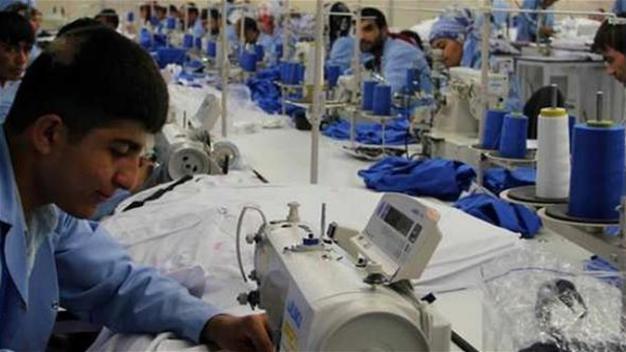Majority of Syrians in Turkey employed in unregistered work for lower wages: Survey
Şebnem Turhan – ISTANBUL

The vast majority of Syrians in Turkey are employed in unregistered work for significantly lower wages compared to their Turkish counterparts, a new survey has shown.
According to a survey by the United Metalworkers Union with 604 Syrian and Turkish textile workers, Syrians work for wages that are 25 percent lower on average than Turkish employees.
The union’s survey, titled “Syrian Migrants’ Labor,” was conducted with a total of 604 textile workers at factories in Istanbul’s Bağcılar and Güngören districts, where underground businesses are very common.
The study revealed a huge wage gap between Turkish and Syrian workers, although 33 percent of all participants were found to be working below the minimum wage of 1,404 Turkish Liras per month (around $386).
The study, which was supported by the Istanbul University Scientific Research Projects unit and conducted by academics from a number of universities, revealed the dramatic impact of Syrians on the Turkish labor market, especially in terms of wages and work registration.
According to the study, Turkish male workers are paid highest among all surveyed, with Turkish women workers earning an average of 309 liras less than Turkish men in the sector. Syrian male workers are paid an average of 330 liras less than Turkish men.
Syrian women earn on average barely half of what Turkish men earn, according to the study.
The report also revealed that 99.6 percent of Syrian men work without any social security insurance, while 100 percent of Syrian women work without insurance.
While 54 percent of Turkish male respondents to the survey are registered worker, this rate is lower at 32.2 percent among their female counterparts with the same nationality, according to the study.
The study also showed that Syrians are finding it easier to find jobs than their Turkish counterparts because they accept lower wages.
Turkish workers, as a result, complain about plunging wages across the sector due to the presence of Syrians. A majority of Turkish workers believe sector wages plummeted dramatically after Syrians arrived and started working in Turkey. The study also revealed that most believe Syrians do not make any positive contributions to the Turkish economy.
However, despite these negative comments, 63 percent of Syrian men said they were pleased with the help of Turkish workers in their jobs. This rate increased to 85 percent among Syrian women, according to the study.
Some 67.5 percent of Turkish workers, however, does not want the state to offer permanent work permits to Syrians.
Only 10 percent, meanwhile, believe that Syrians will stay in Turkey if things normalize in their home country.
 The vast majority of Syrians in Turkey are employed in unregistered work for significantly lower wages compared to their Turkish counterparts, a new survey has shown.
The vast majority of Syrians in Turkey are employed in unregistered work for significantly lower wages compared to their Turkish counterparts, a new survey has shown.